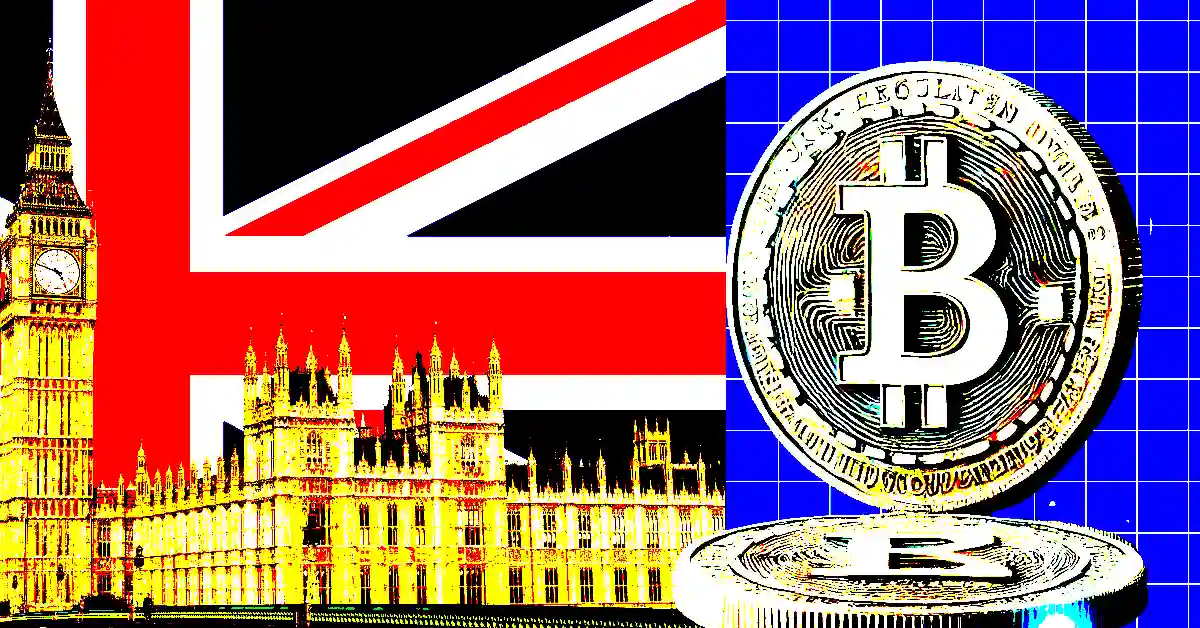
The Great British Bitcoin Snub: Why the UK Won’t Join the Crypto Reserve Craze
Picture this: a high-stakes poker game where nations are betting their financial futures on digital gold. The U.S. just went all-in with whispers of a *Strategic Bitcoin Reserve*, while the UK—cool as a cucumber in a Savile Row suit—folds before the flop. *Dude, seriously?* The Treasury just dropped a mic-worthy statement: no plans for a BTC reserve, thank you very much. But this isn’t just bureaucratic skepticism—it’s a masterclass in risk-averse pragmatism (with a side of blockchain curiosity). Let’s dissect why Britain’s playing the long game.
—
1. Volatility: The Dealbreaker
The Treasury’s rejection boils down to one word: *volatility*. Bitcoin’s price swings make GameStop stock look like a government bond. One day it’s buying Lambos; the next, it’s couch-surfing on Celsius Network’s bankruptcy filings. For a country that survived Brexit whiplash, adding crypto to national reserves is like storing the Crown Jewels in a *pop-up shop*.
The UK isn’t alone. The European Central Bank side-eyes BTC reserves too, comparing them to “tulip mania 2.0.” But here’s the twist: while the U.S. flirts with crypto as a “strategic asset,” Britain’s stance is pure *risk calculus*. Imagine explaining to taxpayers why their NHS funding evaporated in a 20% flash crash. *Yikes.*
—
2. Blockchain > Bitcoin: The Smarter Bet
The UK’s not anti-crypto—it’s *anti-dumb bets*. Instead of hoarding BTC, the Treasury’s geeking out over blockchain’s backstage potential: streamlining debt issuance, turbocharging settlements, even fighting fraud. Think of it as preferring the inventor of the wheel over a lottery ticket.
This isn’t theoretical. The Bank of England’s already prototyping a digital pound (*Britcoin*, anyone?), and the City’s becoming a sandbox for fintech. By focusing on *infrastructure* over speculation, the UK’s hedging its bets—like a detective solving the case *before* the crime happens.
—
3. Regulation, Not Hype
While the U.S. races ahead with Trump-era “crypto moonshot” rhetoric and the EU copy-pastes MiCA rules, the UK’s drafting its *own playbook*. A bespoke regulatory framework by 2025? That’s the equivalent of writing a *crypto constitution*—slow, meticulous, and designed to avoid FTX-style dumpster fires.
Key move: appointing a *senior crypto czar* to oversee the mess. Translation: no wild west here. The goal? Attract innovators without inviting scams. It’s the financial equivalent of a bouncer with a *very* strict guest list.
—
The Global Context: Peer Pressure vs. Prudence
Across the pond, the U.S. Strategic Bitcoin Reserve idea feels like a political flex—*”Look, we’re tech-savvy!”*—but critics call it a *gamble with taxpayer chips*. Meanwhile, Britain’s playing chess: letting others test the waters while it builds guardrails.
This isn’t just about BTC. It’s a referendum on *how* nations should engage with crypto. The UK’s answer? *Innovate, but insulate.* Central banks from Japan to Switzerland are watching—because if crypto winter comes, the UK’s the one with thermal underwear.
—
The Bottom Line
The UK’s Bitcoin snub isn’t fear—it’s strategy. Volatility? Too risky. Blockchain? Hell yes. Regulation? *Write the rules first.* While crypto bros rage, Britain’s plotting a quieter revolution: *own the tech, skip the drama*. So next time someone asks why the UK won’t ape into crypto reserves, just wink and say: *”Because diamonds hands won’t pay the pensions, mate.”*
Case closed. 🕵️♀️
